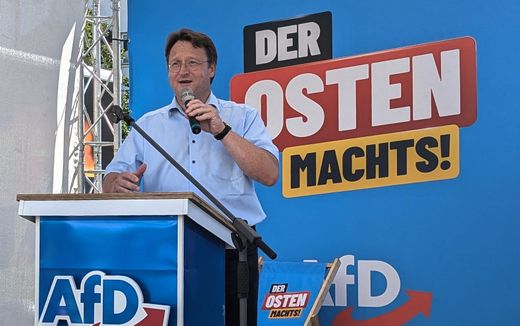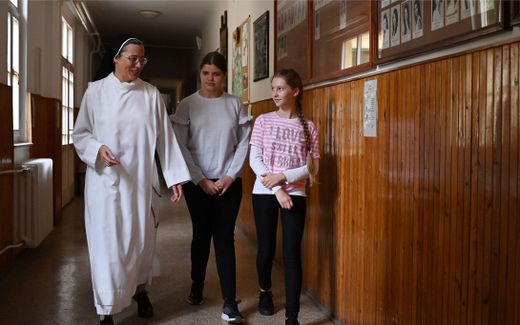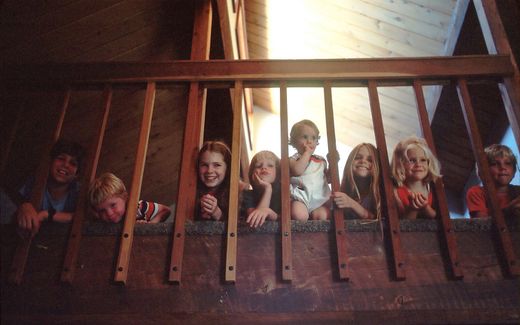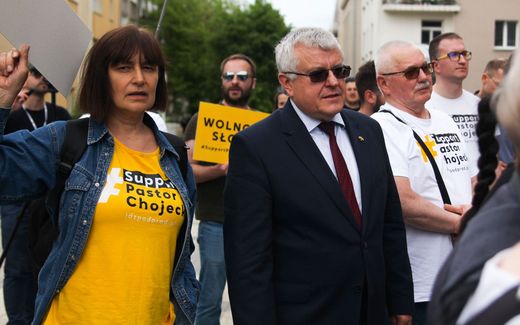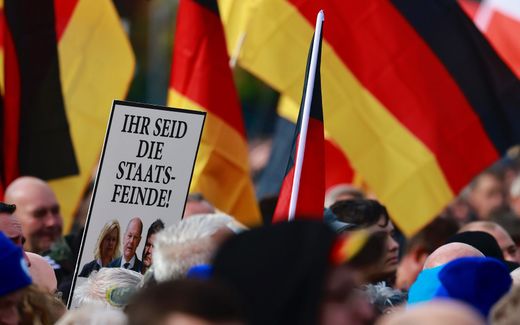CNE's Podcast: Right-wing parties in the German Protestant Church; Religious protest against asylum policy in the Netherlands; Prayer for Volkswagen in a German auto museum

Picture CNE
European Union
NewsRound Europe is CNE’s news podcast. It has a bulletin with some remarkable news topics from the European continent. And at the end, we have a Question & Answer with a colleague about an article.
More Swedish Christians leaving X platform
Many Christian organisations in Sweden are opting for an X-odus. That is, several Christian churches are now leaving Elon Musk's platform X, formerly known as Twitter. The Church of Sweden and its Archbishop have been the latest to leave the platform. The reasons? The Church now says to Dagen that X is not the right place for "confidential conversations.” A social media editor for the Church of Sweden, believes that X has proven to be too time-consuming. She also says that they can reach a wider audience by communicating on other channels.
Stay up to date with Christian news in Europe? Sign up for CNE's newsletter.
Other churches can no longer be found on X. The youth organisation, Equmenia (ek koom-menia) stopped posting in 2018. The Swedish-based Hillsong Church abandoned their account in 2017. The Evangelical Free Church has also not posted since 2019, according to Dagen. It says that it has become a place for influencers but not exactly a space for the general public. Many other organisations find they have larger audiences on Facebook and Instagram.
It has also been the case that leaders from the EFK and at Hillsong have left their personal accounts.
German Protestant Church to ban AFD members from leadership
In Germany, the national Protestant Church has decided to exclude members belonging to the AFD party. The right-wing Alternative for Germany has opposed mass immigration policies and has been criticised for turning Germany into a far-right autocracy.
The decision is that members of this and other extremist right-wing parties cannot carry responsibility in the church. The regional bishop Friederich Kramer of central Germany's Protestant Church Synod says that members of extremist parties should not become church leaders. Kramer also explains that the AFD's inhuman and xenophobic platform goes against the Gospel. Anyone who wants to deport all foreigners, he says, goes against the commandments of Jesus and the church office.
At the same time, Kramer emphasises that the church is open to everyone. Those who do against the Gospel's values, he says, will be opposed.
Religious leaders sign letter to protest asylum crisis declaration
Over 1100 religious leaders throughout the Netherlands have expressed their concerns about the government's recent asylum policy. The Netherlands wants to declare a crisis in the country due to record numbers of asylum applications. The country has also experienced a severe shortage of homes in recent years. In a letter to Prime Minister Dick Schoof, they call on him not to declare a national asylum crisis. They also cite that the Netherlands has only had an "extremely minimal contribution” in the larger global refugee problem. The signatories plead with the Prime Minister to be a servant leader in the current situation and draw comparisons to the 1930s asylum policy when Jews were only allowed under limited conditions.
Prime Minister Schoof is leading an unstable right-wing coalition government, in which the leading party has the reduction of asylum numbers as number one priority.
Polish national court throws out new government policy on catechism classes
The Constitutional Tribunal in Poland has disappointed the present government by blocking new policy on religion education. The liberal government had tried to curb the Catholic catechism at Polish schools, but this is unconstitutional, the court said.
It is likely that the government will reject the court’s decision, since the present Polish government sees the Constitutional Tribunal as an illegitimate body that is filled with political appointments from the previous government.
The government had presented the new policy as a reorganisation of the groups only, so that pupils of mixed ages would attend the same classes. The Catholic church complained about that and with success. According to the judges, the government should have consulted more with the churches about this and not rule on this unilaterally.
The Roman Catholic Church welcomed the decision, because it is this church that is organising the religious education at schools.
Auto workers unite in prayer amid Volkswagen job cuts
And finally, we go to a prayer meeting in a car factory. With massive layoffs expected at several Volkswagen plants in Germany, some Christians have responded by meeting in prayer. The German publication, Pro, reports that the organisation, Network of Christians in Automotive Industry (or CAI), invited its participants to a prayer meeting. That meeting took place in an Auto Museum located in Wolfsburg, a city in northern Germany. More than 90 people had taken part in the event.
The prayer campaign spanned across all Christian denominations and arose out of the need to pray over the current challenges at Volkswagen. The participants prayed for the employees who are afraid of losing their jobs, for wisdom among leaders, and that Germany would continue to become a key location for the automotive industry. In addition to prayer, the CAI aims to connect employees from the automotive industry. In the past, they have organised church services and special events at several automotive companies.
Related Articles



